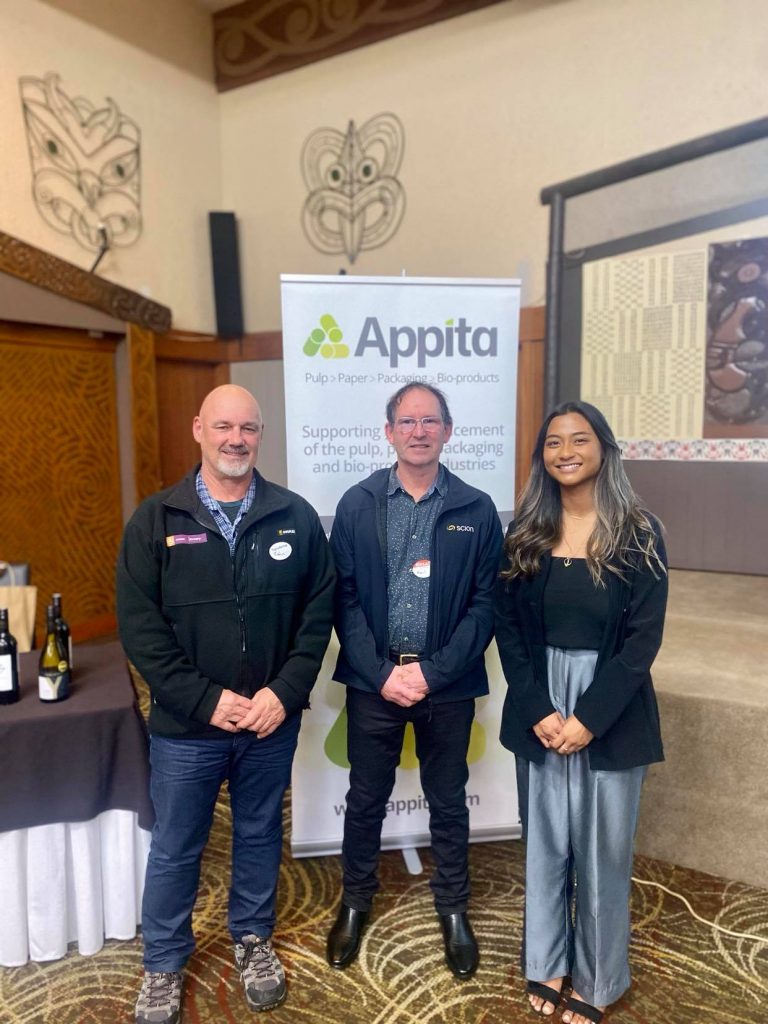One of our core values at Sequal is that we believe we grow the most by giving. Whether it’s to our suppliers, customers, team, community or future generations to come, we want to give more. This ‘give more’ philosophy has shaped Sequal’s business model of mass customisation – as we want to give more to our customers by reducing their waste, reprocessing, costs and give them the products exactly the way they want it.
However, high customisation means high variability. So it is important we maintain high levels of efficiency, even in the midst of this variability. This is why Sequal is constantly looking towards leading technologies in order to make smarter and more efficient decisions.
This month, our very own Automation Engineer, Lizzy Kulasingham, was invited to present at the NZ Institute of Forestry/Appita’s annual dinner meeting about the work she does at Sequal. In particular, she talked about how we use digital twins to help us make smarter decisions in customised production.
In a highly variable manufacturing system, different decisions can have vastly different outcomes. Lizzy said that “by using digital twins, we not only gain insights into our production system but we can also predict different potential outcomes and optimise for the best results.” This standardised way of making decisions is how Sequal can manage customisation in a production system.
In her presentation, Lizzy spoke about a research project she was part of last year at the University of Auckland, partnering with Sequal. She had the opportunity to work with Dr. Jan Polzer, who specialises in digital twins from his previous experience in the manufacturing industry. The result of this project was a decision-making tool that uses digital twins to improve productivity at one of our largest bottlenecks. This year, we have started to roll out this technology at the mill.
We have an amazing team at Sequal and we are very lucky to have talented workers such as Lizzy that can represent Sequal and what we do.
